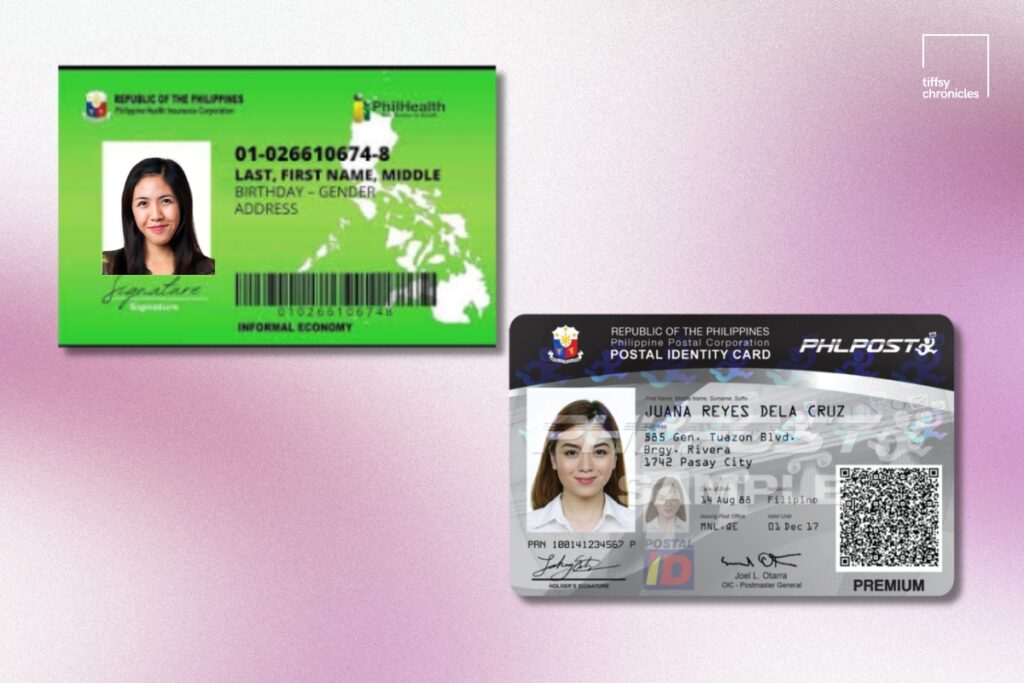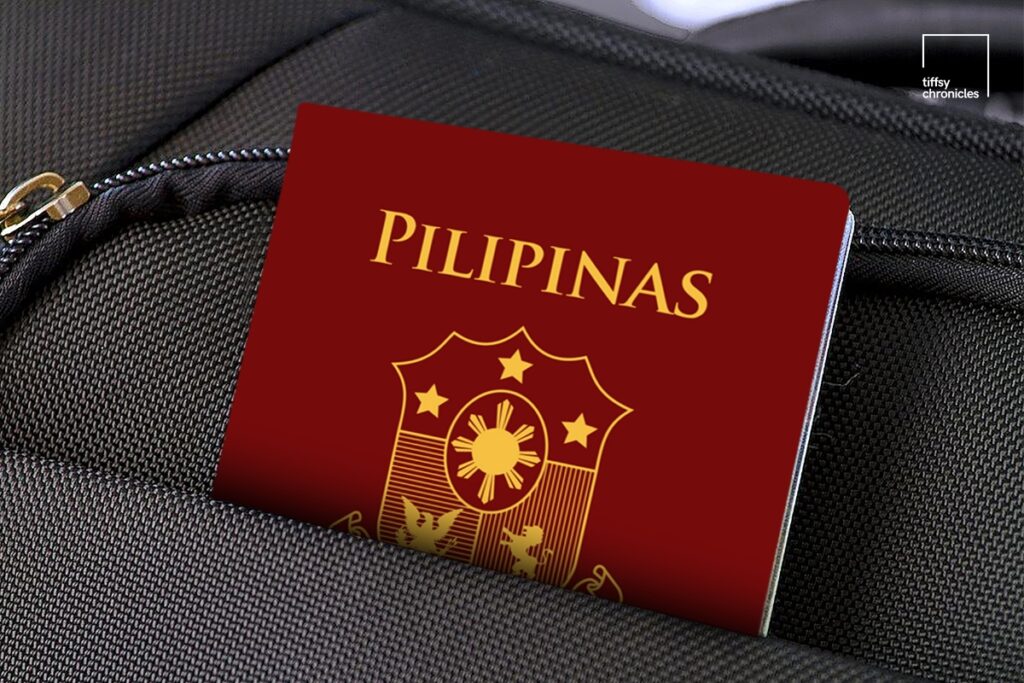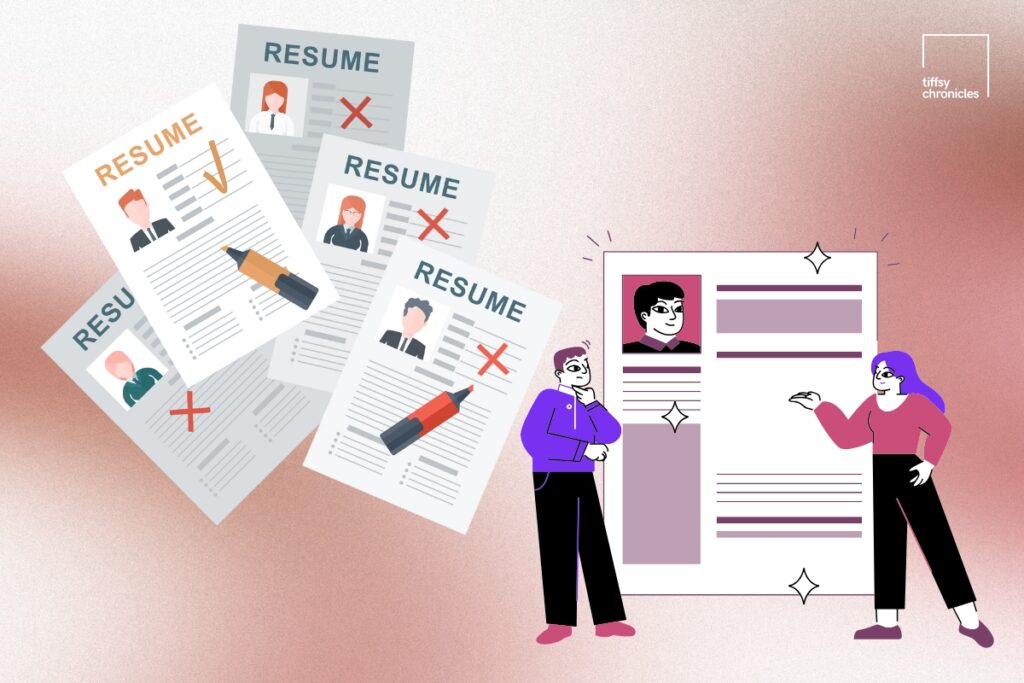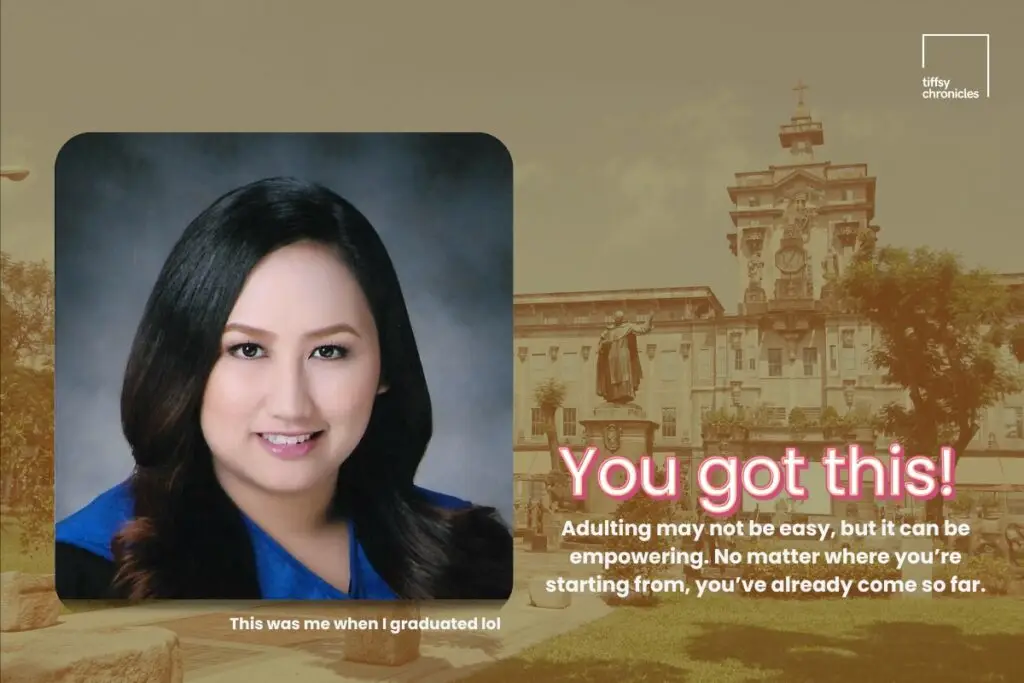12 Practical Tips for Fresh Graduates in 2025 (+ Advice You’ll Actually Use)
Your 2025 adulting guide: 12 smart tips for fresh graduates including career prep, government IDs, money hacks, and life skills you’ll actually use.

So… you finally did it. 🎓 You crossed that stage, shook some hands, posed for the photos, and now you’re holding that diploma you worked so hard for.
But after the cheers fade and the celebrations die down, reality starts to sink in—what now?
Practical Tips for Fresh Graduates in 2025
Stepping into adulthood doesn’t come with a syllabus. But don’t fret—we’ve got your back. Let’s take the guesswork away and let us help you enter #Adulting equipped with all the things you need to know.
Here are practical tips for fresh graduates, a guide to surviving (and thriving!) as a newly minted adult.
Table of Contents
- 1. Declutter Your Space (and Your Mind)
- 2. Organize Your Digital Space
- 3. Start Applying for Government IDs
- 4. Apply for a Passport—Even If You’re Not Traveling Yet
- 5. Start Exploring Job Opportunities
- 6. Learn About Your Industry (and Competition)
- 7. Build and Polish Your Resume
- 8. Notify Your Character References
- 9. Take Care of Your Health
- 10. Build Your First Work Wardrobe
- 11. Start Learning About Personal Finance
- 12. Set Clear Life Goals (as Much as You Can)
- You Got This!
1. Declutter Your Space (and Your Mind)

Let’s start with a clean slate—literally.
Declutter your dorm, room, or wherever you’ve been stockpiling four years’ worth of reviewers, half-printed syllabi, and “group project” messes.
Digitize what’s worth keeping. Toss the rest. Organize your documents and notes in folders or envelopes—you’ll thank yourself later, especially when you need that transcript or resume bullet point.
Tiffsy Tips:
📦 Sort through old school stuff: Recycle or donate books, and scan important notes instead of keeping stacks of paper. Keep books and materials you still need (or want) to read. Everything else, you can throw out or donate to the younger batch. Resell your old books so they can be used by other students.
🗂️ Create a “Career Starter” box: Keep essential college documents like transcripts, certificates, and sample projects in one place. Collect relevant certificates, awards, etc., so you can check this when you start creating your resume for your first job.
🧘 Emotional decluttering: Let go of stuff tied to negative college memories. Mari Kondo your mind. If it doesn’t spark joy—or job prospects—it can go.
2. Organize Your Digital Space

Your laptop needs a detox, too. Digital mess is STILL a mess, so let’s fix that.
You probably have five versions of the same thesis, each one named slightly differently. (“Final_THESIS-v3_FINAL na talaga” ring a bell?)
Back up files you want to keep (Google Drive, iCloud, or an external hard drive), delete junk, and make space for your next chapter—whether that’s job applications or your side hustle.
Tiffsy Tips:
💻 Create folders for job apps: Set up folders like “Resumes,” “Cover Letters,” and “Work Samples.” It’s probably best to create a dedicated folder for your career documents so you can easily get them when you need them.
☁️ Move files to cloud storage: Use Google Drive or iCloud for important files. You’ll thank yourself when your laptop crashes mid-application. If you’re used to using project management apps like Trello, Airtable, or Notion, better to connect your cloud storage there too. You can never go wrong with having an organized space when you need to look up something.
🧹Uninstall unused apps: Get rid of apps you won’t likely use. Free up space for Zoom, Canva, Notion, and Slack—productivity tools you’ll likely use in the workplace.
3. Start Applying for Government IDs

Getting valid IDs isn’t the most glamorous task, but it’s essential. This is probably one of the best tips for fresh graduates you will need to hear. In a country where you need a valid ID to apply for a valid ID, you need to prepare yourself for getting essential government IDs even before you graduate.
You’ll need these documents to apply for jobs, open a bank account, or even freelance.
- SSS (UMID) for your future job
- TIN ID (BIR) for taxes
- PhilHealth and Pag-IBIG for health and housing
- Postal ID or PhilSys ID, City ID and National ID as a quick valid ID
- NBI, Police, and Barangay Clearance for job applications
Tiffsy Tips:
✍️ Schedule online appointments where you can and knock them out during slow days.
🪪 Get a barangay clearance so you can process your Postal ID (the easiest ID to process in my experience).
🤓 Try to process your IDs while you’re still in school so the transition is easier for you. Tips for fresh graduates? No need to pay for ID fees because you can process your IDs for FREE (for the first time).
Fresh graduates can process their IDs for FREE according to RA No. 11261 or the First Time Jobseekers Assistance Act. Here are the IDs you can process for free as a fresh grad:
- Police clearance certificate
- National Bureau of Investigation clearance
- Barangay clearance
- Medical certificate from a public hospital, provided that fees collected for laboratory tests and other medical procedures required for the grant of a medical certificate shall not be free of charge
- Birth Certificate
- Marriage Certificate
- Transcript of academic records issued by state colleges and universities;
- Tax Identification Number (TIN)
- Unified Multi-Purpose ID (UMID) card
- Other documentary requirements issued by the government that may be required by employers from job applicants.
How can you benefit from RA 11261?
Whether you’re a fresh grad or out-of-school youth applying for work for the first time, you can benefit from RA 11261. All you have to do is get a certification from your barangay captain or barangay officials that you are seeking work for the first time. This certificate is valid within one year of your application date.
4. Apply for a Passport—Even If You’re Not Traveling Yet

Waiting until the last minute to get a passport? Big mistake. Appointments can take months. Even if you don’t have travel plans yet, it’s better to be ready. Some jobs even require you to travel abroad, so having your passport ready can make processing documents easier.
Your passport is the strongest identification you could have as a Filipino (it’s the best ID you could have). Check out the requirements for your passport application on the Department of Foreign Affairs website. With 10-year validity, it’s a one-time hassle you won’t regret.
Tiffsy Tips:
🌍 Remote jobs with travel perks are on the rise—you never know when you’ll be flown abroad for training.
📆 DFA appointments get booked months in advance—secure one now and get an appointment slot. Make sure to book at the branch or satellite office near you.
💼 Some employers require it for job applications in customer service, cruise ships, or BPOs with overseas training.
5. Start Exploring Job Opportunities

Take your time to breathe after graduation—but don’t ghost the job market for too long. Check platforms like JobStreet, Kalibrr, LinkedIn, and even Facebook groups for fresh listings. Bookmark postings, update your profiles, and tweak your resume to match roles that interest you.
And yes—freelancing or side gigs count! Whether it’s virtual assistance, writing, or online selling, having income while job-hunting is a smart move.
Tiffsy Tips:
💼 Bookmark job platforms: LinkedIn, JobStreet, Kalibrr, and UpWork for remote gigs.
💸 Join niche FB groups and expand your career circles. Join business events to get to know potential clients and peers in the industry.
🔍 Use job market insights from platforms like Glassdoor or Indeed to check salary ranges and hiring trends.
6. Learn About Your Industry (and Competition)

Adulting isn’t just about finding a job—it’s about finding the right job for YOU.
Research your desired industry. What skills are in demand? What’s the average pay? Are there online courses or certifications you can take while waiting for callbacks?
Sites like Glassdoor, Indeed, or JobStreet Insights can give you salary data and company reviews to help you make smart decisions.
Tiffsy Tips:
💼 Maximize free resources to improve both your technical skills and soft skills.
🧠 Look into salary expectations for entry-level roles so you know how to negotiate.📝 Before anything else, know what your priorities are. List your priorities and non-negotiables so you can get the right role and company for you.
7. Build and Polish Your Resume

Your college CV? That’s just the starting point. Create a professional resume tailored for each job you apply to. Highlight internships, org work, thesis (if relevant), and any awards or certifications.
Tiffsy Tips:
✍️ Tailor your resume for each job—mirror keywords from the job description. You can utilize AI tools to cross-reference your experience with the roles you’re eyeing.
🌐 Polish your LinkedIn profile with a proper headshot, headline, and short bio. Make sure you’re reaching out to connect with peers and potential clients.
📎 Include a portfolio if you’re in creative, tech, or content fields. Sites like Notion, Behance, or Canva make it easy to build one.
8. Notify Your Character References

Before putting anyone’s name down, ask them first. A heads-up is common courtesy, and it gives them time to think about what they’ll say when a recruiter calls.
Former professors, internship supervisors, and org advisers make solid references—especially if they know your work ethic.
Tiffsy Tips:
📞 Give them a heads-up: Message or call to ask permission. You don’t need to include character references in your resume; just provide the contact details whenever the recruiter requests them.
📍 Send them your updated resume so they can speak confidently about your strengths. Plus, they could give you suggestions and areas of improvement.
🎓 Choose mentors or professors who know you beyond academics—maybe someone you collaborated with in orgs or research. Make sure you have a good rapport with them so they can vouch for your character.
9. Take Care of Your Health

Adulting is exhausting and your health is a top priority. You can’t pour from an empty cup, your well-being affects your performance.
Start eating better, hydrate, get enough sleep, and move your body, even if it’s just short walks.
Chances are, your first job will require a pre-employment medical exam, so it’s a good idea to get your health in check early on.
Tiffsy Tips:
🩺 Book a general check-up before starting work, especially if an employment medical exam is required. Maximize FREE health check-ups on barangay health centers and free physical exams on city health offices.
🧘 Start healthy habits now—meal prep, daily walks, screen breaks. Meditate for a few minutes a day to keep yourself grounded and less stressed.
🥤 Drink your water bestie! If you love coffee, I have bad news for you…it is dehydrating. Make sure to drink at least 8 glasses of water a day, especially if you’re transitioning to a 9-5 with aircon 24/7, headaches from dehydration are real.
10. Build Your First Work Wardrobe

Time to upgrade your closet. You don’t need to go full-on fashionista—just grab the essentials:
- A few crisp shirts or blouses
- Slacks or skirts in neutral tones
- A blazer or jacket
- Closed shoes or leather footwear
Thrift stores and ukay-ukay shops are great for affordable finds that still look professional.
Tiffsy Tips:
👕 Start with 5 workwear staples: polo/blouses, black/neutral slacks, a blazer, modest shoes, and a nice bag. You can also have a “uniform” that will be your staple at work, so you won’t have to think about what to wear every time you go to the office.
💸 Shop smart and take advantage of sales in malls and online platforms. Thrift stores and ukay-ukay shops are great for affordable finds that still look professional.
📸 Need to WFH? Even then, you’ll need camera-ready tops for Zoom calls.
11. Start Learning About Personal Finance

Your first paycheck? Exciting. Your first adult bills? Not so much.
Start budgeting as soon as possible. Track your income, spending, and savings. Consider starting an emergency fund, opening a savings account, or even learning about investments through GCash, COL Financial, or Pag-IBIG MP2.
Basic rule: Don’t spend more than you earn. Future-you will be grateful.
Tiffsy Tips:
💰 Track your expenses with budget apps or sheets to develop a habit.
🏦 Open a savings account or digital wallet solely for your “life fund” or emergencies. The rule of thumb is to save for 3 to 6 months of expenses as an emergency fund.
📈 Explore beginner-friendly investments and financial instruments.
12. Set Clear Life Goals (as Much as You Can)

Think beyond the next paycheck. Where do you want to be in 5 years? What kind of lifestyle do you want? Whether it’s traveling, starting a business, or supporting your family, having a goal will give your hustle purpose.
And remember: goals can evolve. What matters is having a direction to move toward.
Tiffsy Tips:
🎯 Write a 1-year, 3-year, and 5-year goal list—career, health, finances, and personal growth.
📓 Start a journal or digital vision board to keep your goals visible.
💬 Talk to mentors or people in the industry to shape realistic, inspiring goals.
You Got This!

Graduating is a huge milestone—but it’s just the beginning. The world won’t hand you a roadmap, but with the right habits, attitude, and a little hustle, you’ll find your way.
Adulting may not be easy, but it can be empowering. And no matter where you’re starting from, you’ve already come so far.
Congratulations, graduate! We hope that these tips for fresh graduates are helpful for your #Adulting journey. The next chapter is yours to write. 💼🌱
What advice can you give to the fresh graduates today? Share your thoughts with us in the comments below!






